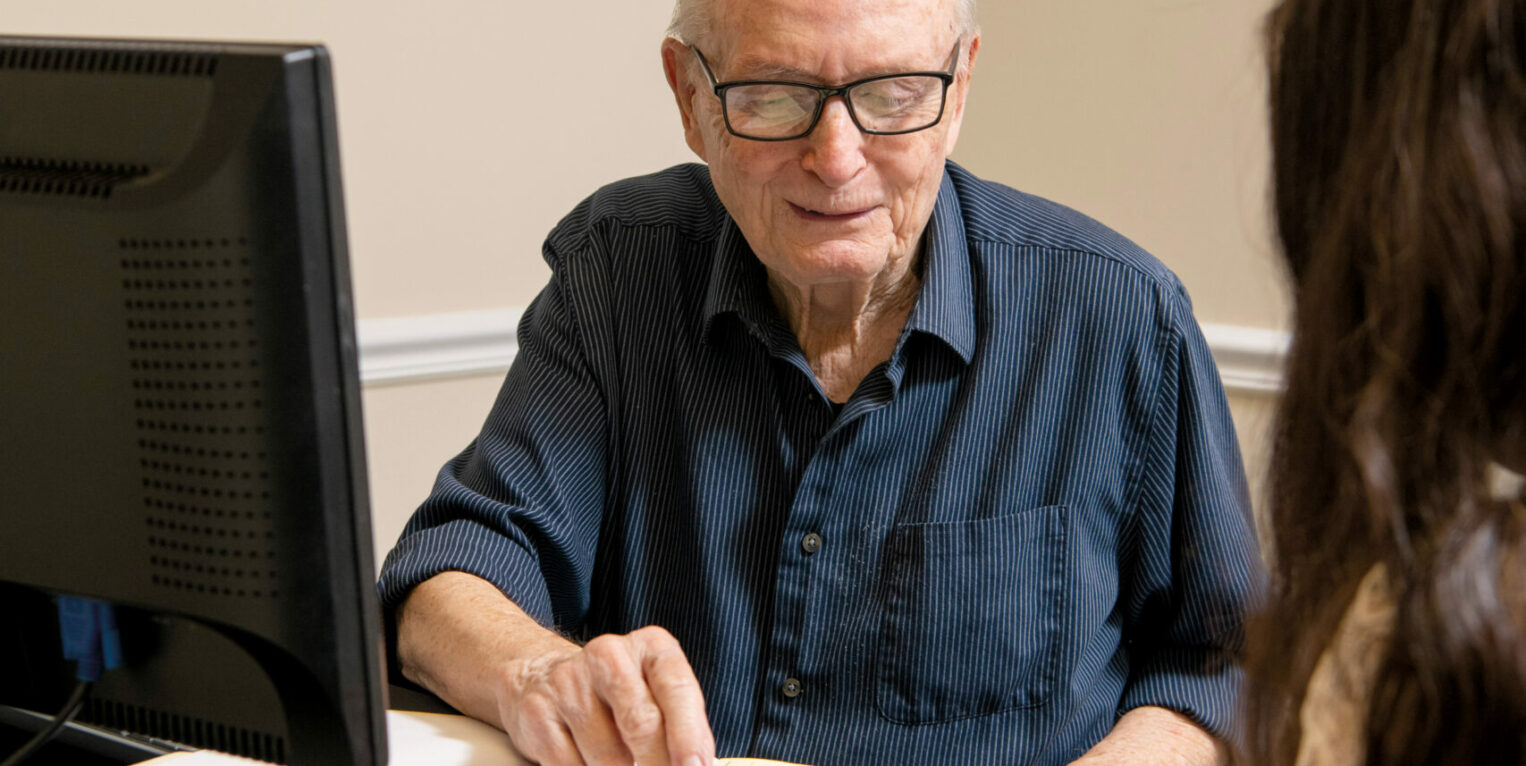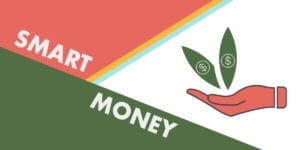
Empowering Communities through Tax Education and Assistance
Pictured Above: John Langan at PEACE, Inc. on East Fayette Street
Longtime volunteer tax preparer John Langan has met a lot of stressed-out people. “Generally, they are intimidated by tax laws,” said Langan, 85, a retired math teacher and computer systems administrator who has volunteered more than 13 years for Peace Inc.’s Free Tax Prep program. “They’re very grateful to have someone knowledgeable to help them file their taxes and get it out of the way.”
Over the years he’s met all kinds of community members: young people filing taxes for the first time, spouses seeking help after their partner has died and New Americans who bring translators to their appointments. “There are sweet stories of people who get a refund who really badly needed it,” he said. “They usually plan to use it for bills, not to buy something special. Many of them are living paycheck to paycheck.”
Low-income communities were disproportionately affected by the COVID-19 pandemic, increasing the need for financial support and making it more likely that many low- and middle-income residents would delay or neglect to file taxes, said Sharon Thompson, manager of PEACE Inc.’s Free Tax Prep program.
In 2021, the American Rescue Plan Act expanded the Child Tax Credit (CTC) and Earned Income Tax Credit (EITC), making most families with children eligible for monthly checks to offset lost income or unpaid bills during the height of the COVID-19 pandemic. But the people who needed it the most did not know about it or did not get it. “Some people panicked when they got mail from the Internal Revenue Service, or they ignored it,” said Thompson. “Others never get that mail because they had recently moved or had not filed income taxes in recent years. Still others wrongly assume they are ineligible for the benefits.”
The Tax Policy Center estimated that at least 1,362 Syracuse children were at risk of missing out on the CTC because their families did not know that they qualified or how to access it.
To address barriers and increase the number of Syracuse families who signed up for the expanded federal tax credit benefits, we received $50,000 in funding from the EITC Funders Network’s Community Outreach and Opportunity fund. We contributed $50,000 of our own funding from our Poverty Initiative Fund for this effort.
Using our Life Needs Assessment data sharing tool (LNA), we identified residents without full-time jobs or who did not have enough money to meet their needs and pay their bills on time. We then used our combined $100,000 and made a grant to the Central New York CA$H Coalition, an initiative of the United Way of Central New York, and a grant to PEACE, Inc. for marketing and administrative efforts.
“The grant allowed us to be more intentional in reaching New Americans, non-filers, and previously incarcerated people,” said Todd Goehle, director of community engagement for PEACE, Inc. Many people in these groups do not file income tax returns because their income is too low. With no IRS record, they do not receive EITC or CTC benefits.
Although the expanded EITC has ended, PEACE is helping people who missed out to file tax information to receive the benefits. The program at 1201 E. Fayette St. provides in-person and over the phone assistance. Staff and volunteers partnered with Beauchamp Branch Library to reach Southside residents.
PEACE also worked with Layla’s Got You on a social media campaign to recruit volunteers and target traditionally underserved residents in high-poverty Syracuse neighborhoods.
“We want to make sure people get what they are due,” Thompson said.
Langan plans to volunteer again next tax season. “Most people are relieved someone is doing taxes for them because there are so many factors involved and they are unaware of all the details,” he said. “It’s good we have the experience to share.”








